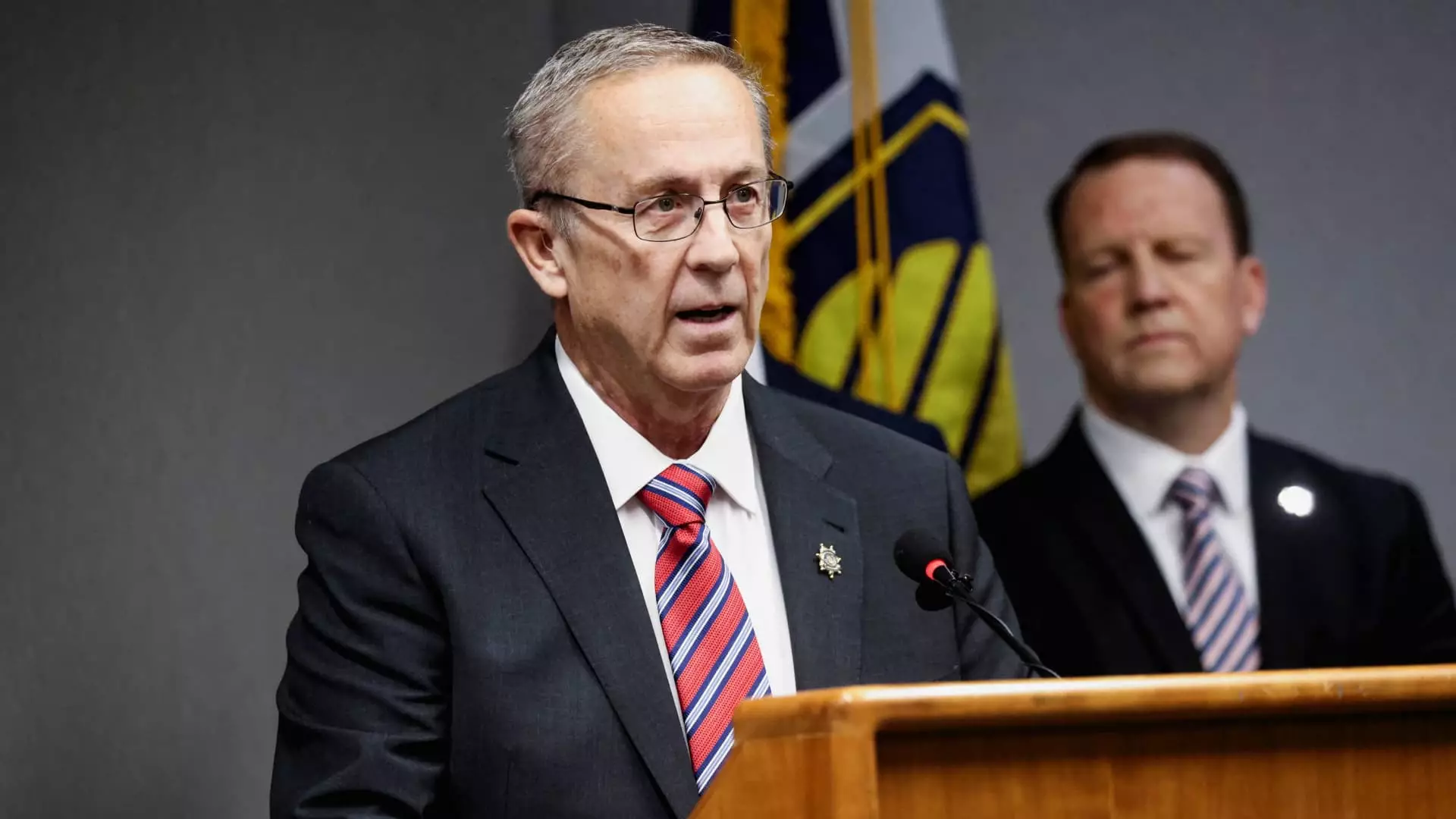In recent days, a tragic event has unfolded that exposes an alarming vulnerability within our political landscape: the deadly shooting of conservative activist Charlie Kirk. While many will focus on the immediate legal proceedings, the core issue demands a deeper reflection on the societal tensions that have been boiling over into violence. This case, involving 22-year-old Tyler Robinson, underscores how polarization and radicalization are tearing at the very fabric of our communities, threatening to undo the fragile balance that keeps our democracy functional.
The indictment and the subsequent public discourse reveal an environment where ideological differences have morphed into dangerous hostility. Robinson’s alleged actions, driven by personal and political shifts, highlight the volatile crossroads between free speech and violence. It’s vital to recognize that this isn’t merely a criminal act but a symptom of a larger societal fracture: a failure to foster constructive dialogue and mutual understanding amid rapidly shifting cultural currents. As a center-leaning liberal, I believe complacency and partisan rhetoric have contributed significantly to this climate, making violence appear as a viable if tragic, response to disagreement.
From Personal Transformation to Political Extremism
Robinson’s family’s commentary offers disturbing insight into his personal journey—becoming more politically progressive and embracing pro-LGBTQ+ identities in recent years. While individual transformation is often celebrated as growth, in this context it appears to have been intertwined with radicalization. The fact that Robinson was reportedly “more left-leaning” and engaged in controversial relationships suggests that personal identity struggles may intersect dangerously with ideological extremes.
This intersection raises questions about how society addresses mental health, identity crises, and political indoctrination. The temptation to drift toward extremist views or perceived grievances can be amplified when young individuals feel alienated or marginalized. Instead of nurturing inclusive, respectful discourse, our media and political narratives often cultivate an environment where disagreement becomes personal enmity. In this climate, polarized rhetoric can escalate tensions into tragic acts of violence, as we see in this case.
The Dangers of Divisive Rhetoric in Political Discourse
Leaders across the spectrum have responded variably to Kurt’s death, with some blaming “the radical left,” while others continue criticizing his politics — even after his death. This polarized response exemplifies a primary fault line in our society: the tendency to demonize political opponents rather than seek common ground. Far-right figures like Donald Trump and JD Vance’s reflex to criminalize leftist groups deepen the chasm that fuels anger and distrust.
It’s imperative to recognize that such rhetoric fundamentally undermines democratic norms and fuels violence. When political debate devolves into verbal attacks and accusations of widespread radicalism, it disengages people from rational dialogue. The tragedy here is that violence is often justified or dismissed as a byproduct of perceived injustice, which over time normalizes hostility rather than fostering understanding. A return to center-left principles—respect for differing opinions, dialogue, and empathy—is essential to prevent further tragedies.
Challenging the Cultural Environment that Permits Violence
This case demands that we confront the cultural undercurrents that enable such acts. The online spaces where radical views flourish, the sensationalism that stokes outrage, and the failure of leadership to promote unity all contribute to an environment where violence becomes a lurking threat. As a society with a center-left liberal perspective, it is crucial to promote policies and social initiatives that emphasize mental health support, counteract hate speech, and promote civic education rooted in empathy.
We must also hold accountable those who perpetuate divisive narratives, regardless of political affiliation. Condemnation without introspection only fuels resentment; action grounded in community-building and fostering resilience against ideological extremism is needed. The hope lies in creating a political culture rooted not in fear and hatred, but in shared human dignity and the acknowledgment that disagreement can be handled peacefully.
This heartbreaking episode serves as a stark reminder that the path to social harmony is narrow and fragile. It demands unwavering commitment from moderate voices across the political spectrum—to push back against the incendiary language and to champion a politics grounded in respect and understanding. Our society must recognize that fueling intolerance and violence is a deadly gamble with our collective future, and it’s our moral duty to promote healing, empathy, and moderation rather than division and hostility. Only through deliberate civic responsibility can we hope to prevent such tragedies from recurring.


Leave a Reply